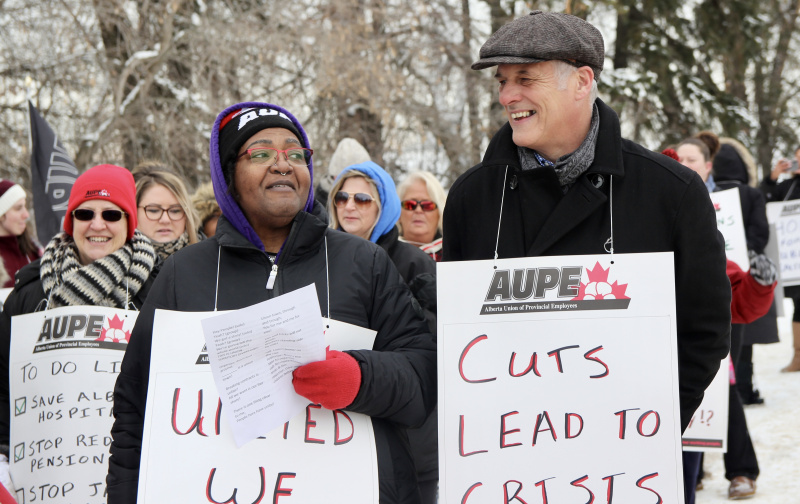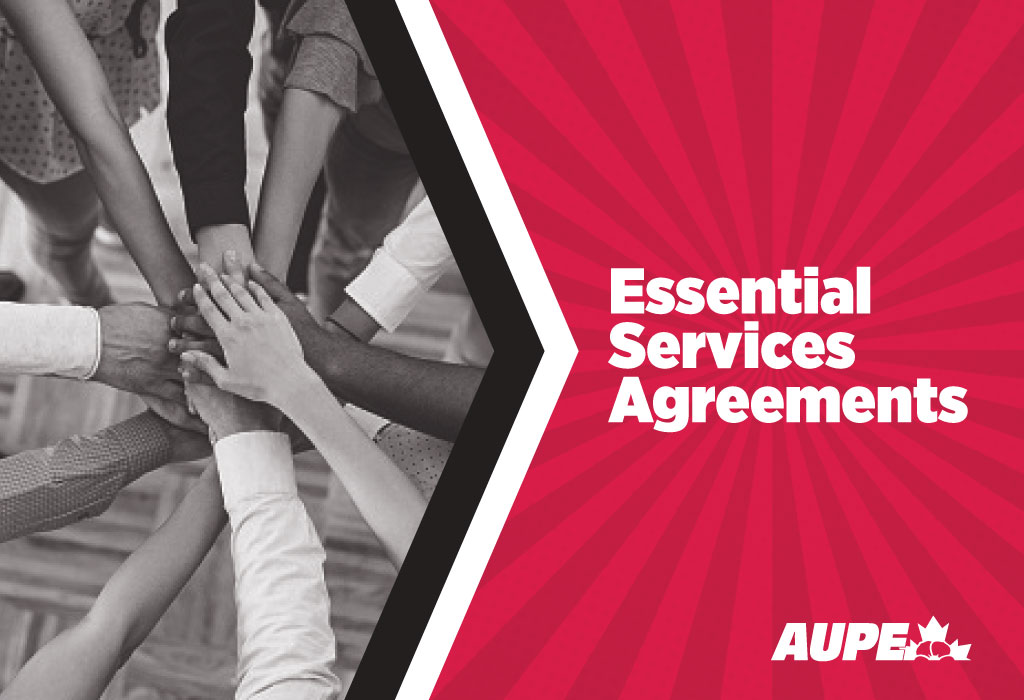What is an Essential Services Agreement (ESA)?
Essential Services Agreements have a huge impact on our strikes. The details of the agreements determine who will be able to participate on a strike line and who may be required to work. Here is what you need to know about ESAs and going on strike.
Essential Services Agreements decide who must keep working during a strike.
ESAs are considered necessary to protect life, safety, and public health, as well as maintain the rule of law and public security.
Many AUPE members work for organizations that are directly responsible for public safety, health, and security – such as those working for the Government of Alberta and in health care.
ESAs protect the Albertans who rely on you if you are ever on strike or locked out by your employer.
Your ESA Documents
You must be signed in to your MyAUPE account to access your Essential Services Agreement (ESA) Documents. ESA documents will be posted as they become available.
Government of Alberta
ESAs and Strikes

How does your ESA impact your strike?
If you have an ESA, some members will still go in to work while the rest will not. Schedules of who works and who doesn’t can change from day to day.
We will still have strike lines! Unless you are designated ‘essential’ and scheduled to work, members are expected to walk the strike line just like any other strike.
Because some of us are legally scheduled to work, other members should not work. If you are not scheduled to work, you must not cross the strike line.
Designated Essential Service Workers (DESWs)
This section is for members who are designated and scheduled to provide essential services during a strike.
Working during a strike can be difficult, especially if you would rather show your solidarity on the strike line with your coworkers.
If you are working during a strike, only do your specific duties that have been deemed ‘essential.’ Do not do a striking coworker’s job for them and avoid doing favours for management.
You can still support the strike line on your breaks or when you are not scheduled to work as a Designated Essential Service Worker. For example, if you usually receive a lunch break from Noon – 1 p.m. that is considered non-work time, you can join your coworkers on the strike line in support. You must then return to work on time after your break.
Frequently Asked Questions (FAQs)
Still need answers to more general questions you may have about the Essential Services process?
